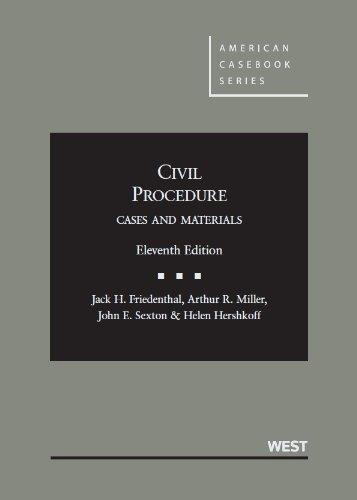14. Whether a notice provides enough information for the recipient to mount a response is a question
Question:
14. Whether a notice provides enough information for the recipient to mount a response is a question that implicates the administration of a broad range of government programs.
For example, before terminating public benefits, the government must provide notice that explains the reasons for its decision. E.g., Ortiz v. Eichler, 794 F.2d 889 (3d Cir. 1986).
In FINBERG v.SULLIVAN, 634 F.2d 50 (3d Cir. 1980), the court, sitting en banc, held that Pennsylvania’s post-judgment garnishment procedure violated the Due Process Clause.
Beatrice Finberg was a sixty-eight year old widow entirely dependent on Social Security for her income. A discount company obtained a default judgment against her and sought to execute the judgment pursuant to a Pennsylvania practice permitting the seizure of assets, without notice or opportunity for a hearing, upon a judgment creditor’s petition (to a clerk or magistrate) for a writ of execution. Under this procedure, the plaintiff garnished Finberg’s bank accounts, which contained the proceeds of her Social Security benefits. The critical fact was that all of the garnished money was exempt from seizure because federal law proscribes the seizure of Social Security benefits and Pennsylvania law provides a $300 cash exemption to debtors in Finberg’s position. The Finberg court held the Pennsylvania practice unconstitutional, among other reasons, because it failed to require the creditor to inform the debtor of existing exemptions.
Step by Step Answer:

Civil Procedure Cases And Materials
ISBN: 9780314280169
11th Edition
Authors: Jack Friedenthal, Arthur Miller, John Sexton, Helen Hershkoff






